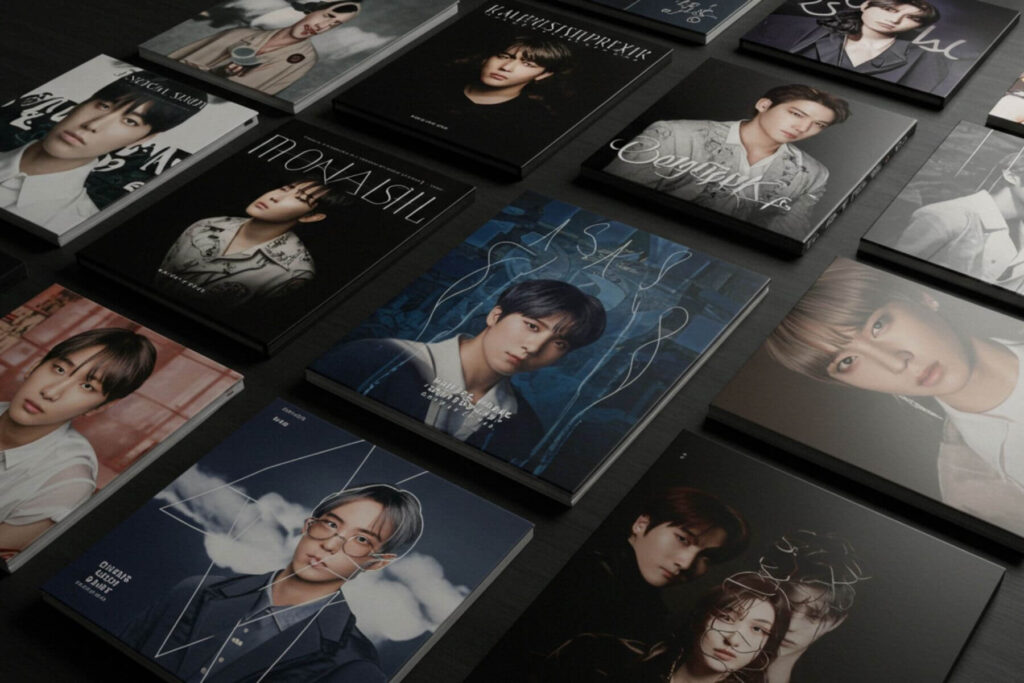K-pop is no longer just a South Korean phenomenon; it’s a global force that’s rewriting the rules of the music industry in 2025. With a unique blend of catchy beats, high-quality visuals, innovative marketing, and devoted fandoms, K-pop is influencing how music is made, shared, and consumed around the world. As the genre continues to expand its reach, many elements of the K-pop system are now being adopted or imitated by artists, labels, and platforms internationally. Let’s explore ten powerful ways K-pop is changing the global music industry this year.
1. K-pop’s global fandom culture is setting new industry standards
K-pop fandoms have redefined what it means to support an artist. In 2025, fanbases like BTS’s ARMY and BLACKPINK’s BLINKs are no longer just passive listeners; they’re active participants in shaping an artist’s success. They organize streaming events, mass-purchase albums, trend hashtags, vote in global awards, and even fund advertisements across major cities. This fan-driven ecosystem has pushed Western labels and artists to rethink how they engage with their audiences. Now, fan involvement is a key strategy in artist promotion and global outreach, and it all started with K-pop.
2. Multilingual releases are becoming the norm, not the exception
K-pop groups regularly release songs in Korean, English, Japanese, and even Chinese to appeal to international fans. In 2025, this approach is influencing global artists to do the same. Western acts are now experimenting with multi-language versions of their singles to expand their reach. K-pop’s cross-cultural strategy has proven that music doesn’t need to be in English to be successful. It’s inspiring a more global mindset, encouraging artists to embrace linguistic diversity and localize their music for international audiences.
3. High-concept music videos are raising production standards
K-pop music videos are known for their cinematic visuals, stunning choreography, and tightly choreographed narratives. These high-concept videos often feel like short films, and in 2025, they’re setting the bar for the rest of the music industry. Western artists are now investing more in music video storytelling, intricate set designs, and eye-catching choreography to compete. As K-pop continues to raise the visual expectations of music content, audiences around the world are demanding more immersive experiences from every genre.
4. K-pop’s trainee system is influencing artist development models
The K-pop trainee system is rigorous, long-term, and highly competitive. Trainees often spend years perfecting vocals, dance, foreign languages, and media training before debuting. In 2025, this approach is beginning to influence artist development outside Korea. Some Western labels have started implementing structured training programs that resemble the K-pop model, especially for young or new talent. This marks a shift from focusing solely on raw talent to investing in all-around artist growth and branding from the very beginning.
5. Social media fan engagement is more strategic than ever
K-pop idols use platforms like Weverse, Instagram, TikTok, and YouTube in highly strategic ways to connect with fans. Whether it’s behind-the-scenes content, Q&A sessions, vlogs, or TikTok dance challenges, every interaction feels personal. In 2025, more global artists are following suit. The K-pop industry has shown that consistent, authentic, and entertaining social media content can deepen fan loyalty and grow international audiences. Now, artist marketing is no longer just about press tours; it’s about staying connected daily.
6. K-pop is redefining what it means to be a “global artist”
In the past, being a global artist meant breaking into the U.S. or U.K. charts. But in 2025, K-pop is changing that definition. K-pop groups are topping charts not just in America and Europe, but also across Latin America, Southeast Asia, and the Middle East. Their global appeal lies in blending cultural elements, collaborating with international artists, and engaging with fans worldwide. The rise of multilingual releases, cross-border promotions, and localized tours shows that the future of music is truly global, not just Western-centric.
7. K-pop collaborations are merging genres and cultures
From BTS working with Halsey and Coldplay to NewJeans collaborating with global brands and producers, K-pop is breaking musical and cultural boundaries. In 2025, these collaborations have become more frequent and more seamless. Western artists are seeking out K-pop groups not just for popularity but also for creative synergy. These genre-blending projects bring together different styles, languages, and audiences, resulting in a richer and more diverse music scene that resonates across continents.
8. K-pop merchandise and album packaging are revolutionizing physical sales
At a time when digital streaming dominates, K-pop has found a way to keep physical album sales alive and thriving. In 2025, K-pop albums come with collectible photobooks, random photocards, posters, and even augmented reality experiences. Fans view them as premium products rather than just music. This trend is now being noticed by artists outside of Korea, who are experimenting with collectible packaging, limited editions, and interactive merchandise to boost physical sales and create emotional value for their fans.
9. Virtual concerts and online fan events are becoming mainstream
During the pandemic, K-pop pioneered high-tech virtual concerts that reached millions around the world. In 2025, even with live tours back in full swing, online concerts and fan meets remain popular. K-pop groups offer exclusive live-streamed events with real-time interaction, chatrooms, and bonus content. This hybrid model of fan engagement is now being adopted by international artists, helping them connect with fans who can’t attend in-person events. K-pop has proven that virtual experiences can be just as exciting and profitable as live ones.
10. K-pop’s emphasis on group identity is changing artist branding
Unlike many Western artists who rise as solo acts, K-pop emphasizes teamwork, roles within a group, and shared branding. Each member may have a specific role, like leader, visual, rapper, or dancer. This concept has reshaped how fans form attachments, often supporting the group as a whole while still having individual “biases.” In 2025, this branding model is inspiring more international groups and collaborations that highlight each member’s unique appeal while presenting a unified group identity. The result is stronger brand loyalty and deeper fan engagement.
Bottom line
K-pop is doing much more than topping charts; it’s transforming how the global music industry operates in 2025. From innovative marketing to visual storytelling, from fan engagement to redefining success, K-pop has introduced a new playbook for building lasting, global music careers. As more international artists and labels take notes, it’s clear that K-pop is no passing trend; it’s a blueprint for the future of music.
Whether you’re a die-hard fan or a curious observer, there’s no denying the impact K-pop is having on the world stage. And in 2025, that influence is only growing stronger.



